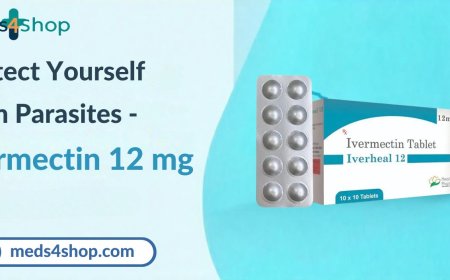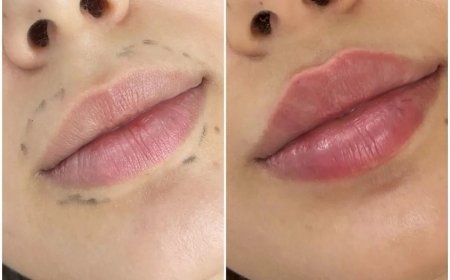7 Tips to Manage Your Health Without Over-Medication!
Here are 7 practical tips to manage your health without over-medication—straight from everyday experience, and backed by advice from the best general physician in Nagpur.

Feeling a bit gloomy lately? You're not alone.
Rainy days, less sunlight, and chilly evenings can mess with both your body and mind.
And if you're feeling off, it's easy to turn to pills for every little discomfort. Headaches? Take something. Back pain? Pop another. But what if you could feel better without relying so much on medication?
Here are 7 practical tips to manage your health without over-medicationstraight from everyday experience, and backed by advice from the best general physician in Nagpur.
Let's keep it simple, doable, and real.
7 Tips to Manage Your Health Without Over-Medication
1. Start with Gentle Stretching
Honestly, stretching feels like one of those things we all know we should do but don't.
Why? Because it seems too basic. But that's exactly the point.
1. Stretching improves blood flow
2. Loosens tight muscles (especially in the cold, damp weather)
3. Reduces everyday painwithout painkillers
It doesn't need to be complicated.
Here's what works for most people:
1. 510 minutes after waking up
2. Focus on the neck, shoulders, lower back, and hamstrings
3. Breathe while you stretch. Sounds obvious, but people hold their breath without realizing it.
If you sit a lot (and most of us do), try standing up every hour and doing a quick stretch. Doesn't have to be fancy.
Personally? I like doing a slow forward fold. Just letting my arms hang. It's weirdly calming.
The goal here isn't to become a yoga pro. It's to feel a little better than you did yesterday.
2. Build a Simple Indoor Workout Routine
Let's be honestwhen the weather sucks, motivation drops.
No one's heading out for a jog when it's wet and cold outside. That's fine.
But movement? Still matters.
You don't need a gym. You don't need fancy equipment. And no, you don't need a six-pack goal.
Start small:
1. 10 squats
2. 10 push-ups (even if they're on your knees)
3. 20 jumping jacks
4. 20 seconds of plank
Repeat that 23 times. That's it.
Do this 34 times a week and you'll notice:
1. Better sleep
2. More energy
3. Fewer random aches
Don't chase perfection. Just show up.
Rainy outside? No problem. You're working out inside, anyway.
According to the best general physician in Nagpur, even moderate activity improves immunity and keeps seasonal infections away.
3. Don't Ignore Your Mental Health
This one's big.
When it's gloomy outside, it seeps in. You feel foggy. Unmotivated. Maybe even sad or anxious.
Instead of ignoring it (or masking it with meds), try facing it head-on.
What helps?
1. Light exposure: Open your curtains, sit near a window
2. Routine: Waking and sleeping at the same time every day keeps your brain more stable
3. Journaling: Not for everyone, but it clears your head
4. Talking to someone: Friend, therapist, doctorit helps
Also, make room for stuff that feels good. Music, hobbies, old moviesanything that reminds you you're human.
You don't need a diagnosis to care about your mental health. Feeling off is reason enough.
4. Eat Real, Warm Food
When you're not feeling great, it's tempting to grab something fast or processed. But your food impacts how you feel more than you realize.
Keep things simple:
1. Cooked veggies
2. Soups and lentils
3. Eggs, oats, rice
4. Fruits like bananas, apples, and oranges
Stay away from heavy junk food. It makes you sluggish and bloated, especially in this weather.
Try turmeric in warm milk if you're fighting inflammation. It's not magic, but it helps.
Oh, and drink water. Even when you're not thirsty, especially when it's not hot outside, people forget, and dehydration can mess with your mood and energy.
5. Cut Down on Screen Time
Not saying go off-grid. But if you're constantly on your phone, doomscrolling, or bingeing shows, it adds up.
You feel restless, tired, and somehow... more anxious.
Try:
1. No screens at least 30 minutes before bed
2. Leaving your phone in another room for an hour
3. Taking walks without headphones sometimes
Even short breaks matter.
It's wild how much your body and brain thank you when you just stop staring at a screen.
The best general physician in Nagpur often reminds patients: real rest doesn't come from watching five episodes in a row. It comes from actual stillness.
6. Prioritize Sleep Like It's Medicine
You can't talk about health without talking about sleep. It's boring, but true.
Poor sleep = more pain, worse mood, lower immunity.
Don't overthink it. Just fix the basics:
1. Go to bed and wake up at the same time (even on weekends)
2. Keep your room cool and dark
3. Avoid caffeine after 4 pm
4. No heavy meals before bed
Still having trouble sleeping?
Try reading a physical book or listening to calming music instead of scrolling. Works for me 90% of the time.
If your sleep's been off for weeks and it's affecting your days, speak to a doctor. It might be deeper than stress.
7. Don't Self-Medicate for Every Small Issue
This one's hard because we're so used to it.
Mild headache? Pill. Bit of gas? Tablet. Can't sleep? Something stronger.
Sometimes it's necessary. But doing it all the time? Not the best idea.
Over-medicating masks symptoms instead of fixing them. And sometimes it creates more problems later.
Instead, try this:
1. Ask: "Is this something I can manage naturally?"
2. Use natural remedies when possible (like ginger for nausea, stretching for tension)
3. Let your body rest and recover instead of powering through with pills
Of course, don't avoid real treatment when you need it. Just don't rush to medication every single time.
According to one of the most experienced general physicians in Nagpur, the goal isn't to avoid all medicineit's to use it wisely.
Why This Approach Works
When you stretch, move, eat better, rest more, and manage your mind, you start feeling different.
You get fewer colds. You recover faster. You're not as tired or irritable.
And you stop depending on pills for every little thing.
Your body's smart. It wants to heal.
It just needs your help.
These tips to manage your health without over-medication aren't just about avoiding medicine. They're about building habits that support your whole body, especially during weird weather, low moods, or everyday stress.
What would your life look like if you felt good most of the time, without needing a drawer full of meds?
You don't have to overhaul your whole lifestyle overnight. Just start with one tip.
Stretch tomorrow morning.
Take a 15-minute walk.
Or shut your phone down 30 minutes early tonight.
That's where it begins.








































